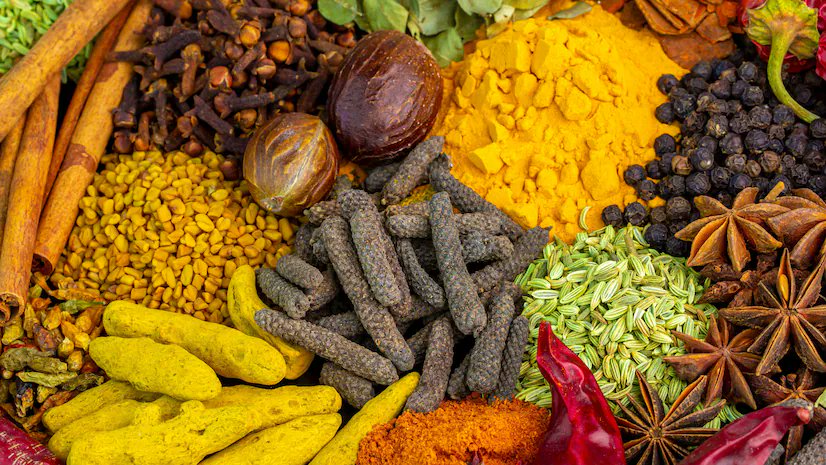Business
US Exempts $50 Billion in Tariffs, Boosting Indian Spice Exports

The United States has announced a significant shift in its trade policy, exempting exports of agricultural products valued at approximately $50 billion from reciprocal tariffs. This exemption particularly impacts products that are not sufficiently produced in the U.S., including various spices from India, which currently constitute a modest $548 million of that total.
According to a notification from the White House, this decision reflects ongoing trade negotiations with countries that export substantial volumes of agricultural goods not cultivated in the U.S. The announcement specifies that certain agricultural products will no longer face reciprocal tariffs, providing an avenue for countries like India to enhance their export potential in specific sectors.
Details of the Tariff Exemption
The exempted agricultural products encompass a wide range, including coffee, tea, tropical fruits, cocoa, and spices, alongside beef and select fertilizers. These items represent a collective import value of $50.6 billion to the U.S. market. However, as noted by the Global Trade Research Institute (GTRI), India’s share in this list remains relatively small, primarily consisting of high-value spices and niche products.
Specifically, India’s exports to the U.S. include pepper and capsicum preparations valued at $181 million, ginger, turmeric, and curry spices totaling $84 million, and various seeds such as anise and cumin worth $85 million. Other notable exports include cardamom and nutmeg valued at $15 million, along with tea worth $68 million. Despite these figures, India has minimal representation in larger exempted categories like tomatoes and citrus fruits.
The uncertainty surrounding whether Indian exports will benefit from the full 25 percent or 50 percent tariffs remains a critical factor. This shift in U.S. tariff policy could provide a slight competitive edge for India in the spice and niche horticulture markets. Nevertheless, the major beneficiaries are likely to be exporters from Latin America, Africa, and ASEAN countries, which dominate these agricultural sectors.
Implications for Indian Exporters
The exemption from reciprocal tariffs opens opportunities for Indian exporters to increase their market share in the U.S. agricultural space. By focusing on high-value spices and specialty products, Indian exporters could potentially enhance their presence despite the overall limited scope of their current exports.
As the U.S. continues to adjust its trade policies, the landscape for international agricultural trade remains dynamic. While India stands to gain from this recent policy change, the broader implications will likely favor nations with larger agricultural production capabilities. The coming months will reveal how effectively India can navigate this new terrain to capitalize on its strengths in the spice market.
-

 World5 months ago
World5 months agoSBI Announces QIP Floor Price at ₹811.05 Per Share
-

 Lifestyle5 months ago
Lifestyle5 months agoCept Unveils ₹3.1 Crore Urban Mobility Plan for Sustainable Growth
-

 Science4 months ago
Science4 months agoNew Blood Group Discovered in South Indian Woman at Rotary Centre
-

 World5 months ago
World5 months agoTorrential Rains Cause Flash Flooding in New York and New Jersey
-

 Top Stories5 months ago
Top Stories5 months agoKonkani Cultural Organisation to Host Pearl Jubilee in Abu Dhabi
-

 Sports4 months ago
Sports4 months agoBroad Advocates for Bowling Change Ahead of Final Test Against India
-

 Science5 months ago
Science5 months agoNothing Headphone 1 Review: A Bold Contender in Audio Design
-

 Top Stories5 months ago
Top Stories5 months agoAir India Crash Investigation Highlights Boeing Fuel Switch Concerns
-

 Business5 months ago
Business5 months agoIndian Stock Market Rebounds: Sensex and Nifty Rise After Four-Day Decline
-

 Sports4 months ago
Sports4 months agoCristian Totti Retires at 19: Pressure of Fame Takes Toll
-

 Politics5 months ago
Politics5 months agoAbandoned Doberman Finds New Home After Journey to Prague
-

 Top Stories5 months ago
Top Stories5 months agoPatna Bank Manager Abhishek Varun Found Dead in Well









